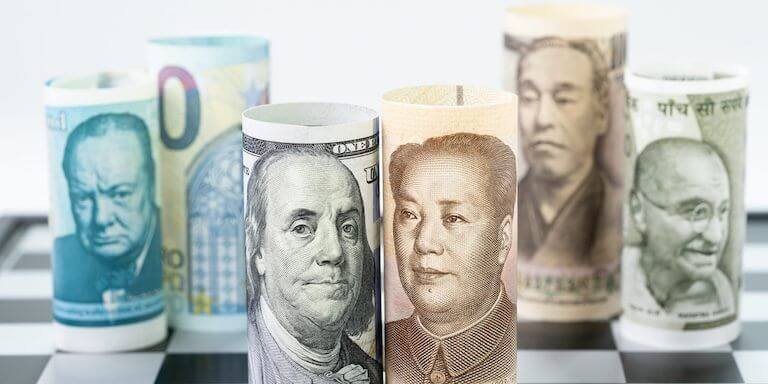Lately, the news has been in a flurry with impending tariff threats and trade wars not only with China, but now with Mexico, too. Whenever talk of new (and higher) tariffs arise, the first thing economists do is look at how it affects small businesses. It may seem like American businesses would have an advantage to foreign competitor companies that provide formerly cheaper services through outsourced labor, but in reality the higher costs of doing business force a chain reaction of raising prices to maintain profit margins.
THE MEXICO IMPORT TARIFF MATH
President Trump proposed a 5% tariff on Mexican imports, with the possibility of increasing that number to 25% over the next year. Something as small as 5% may seem like a little amount when looking at 5% out of $20. But you have to magnify it to the large scale cash flow most businesses have. Just like 5% tax on your $50 shoes isn’t much, an extra 5% tax on your $50,000 annual income is.
A 5% tariff increase is a huge blow to the company margins if you look at this example. Before the tariff, if sales are $100 and total expenses are $85, then the net profit is $15 dollars. When you take the 5% tariff out of the $100 sale, that net profit drops to $10 dollars which is a 33% decline in net profits. Now amplify that example to a larger number where profits are $100,000 or $1,000,000. That 33% is a huge financial impact on a business and most companies can’t sustain that type of blow to profits and cash flow. To deal with this, most companies will increase their sale costs to recoup the loss of profit, which only serves to cause their vendors and clients who aren’t directly affected by international tariffs to raise their prices as well, and so on, or lose their clients altogether.
The Effects on Small Business and Multinational Companies
Small businesses feel the tariff much more than multinational companies, even though their sales and net profits may be smaller. Small businesses most likely don’t handle all of their operations in-house like the big companies and are outsourcing their labor and especially their materials. Small businesses also operate on smaller profit margins to stay competitive, and increasing their costs to balance the tariff will make them less competitive.
Big businesses with access to liquid capital will fair better. The large multinational companies have the best options for financial flexibility because they can raise debt or equity if needed to stay afloat, hoping the tariffs are temporary. Big businesses can also absorb the profit loss better and have more options for internal restructuring to save money as well.
To safeguard against a potentially brutal tariff, small businesses are preparing in a few ways. Many are looking to stockpile inventory before the cost goes up. Tariffs are often a temporary situation to make something else happen and keeping a larger inventory could help them coast through the temporary price hike. Business owners are also looking into local manufacturers that are now cheaper than the foreign competitors who have a tariff on their goods. Price raising causes a chain reaction throughout suppliers and vendors.
Many business owners are making several possible outcomes for what to do depending on the size of the tariff, if prices are raised on them, and if they have to raise prices. Options often include laying off employees, cutting spending, taking a hit to their bottom line, finding new vendors, raising prices, or lowering wages.
The Positives and Negatives of Increased Tariffs
President Trump has stated in multiple interviews that an increase in Mexico and China tariffs will no longer make international operations more lucrative and this increase in doing business will encourage more corporations to move back to the USA to do business, ultimately benefiting the domestic economy.
Tariff threats are constantly breaking in the news, some unfounded some brought to fruition. Only time will tell how much those tariffs will be and how long they will last. In the meantime, the best thing a business owner can do is have a plan and be prepared for any outcome.
